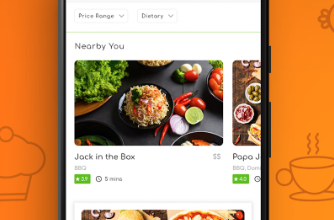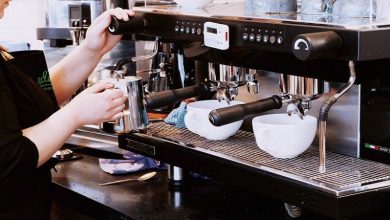Anti-Counterfeit Cannabis Packaging

Packaging is no longer limited to expensive handbags and Nike t-shirts; cannabis businesses are also being targeted. Counterfeiting is also far more widespread than most people believe. Fraudulent product sales are predicted to reach $4.2 trillion by 2022, according to the International Chamber of Commerce.
As a result, it was only a matter of time until marijuana counterfeiting became commonplace. Cannabis is an excellent target for counterfeiters. It’s easy to pass off a cheap replica based on packaging alone because many cannabis products, including as oil and flower, are practically identical at the point of sale.
Worse, retailers who continue to operate in the “grey market” exacerbate the problem of cannabis counterfeiting. Unlicensed retailers will gladly carry any goods that sells, regardless of where it came from. It’s also difficult to track down and penalize imitators because regulatory efforts are still patchy.
If counterfeiters can readily replicate your packaging and your brand is well-known enough to be copied, you may find yourself competing with a sub-standard version of your own product. And it’s for this reason why distinguishing cannabis packaging is so vital. It safeguards your intellectual property while simultaneously safeguarding consumers from tainted goods.
Disadvantages on Consumers of Cannabis Counterfeiting
Consumers have evolved to trust well-known brands and licensed shops in the era of legal cannabis. That isn’t to say they aren’t cost conscious. They may fall prey to fraud if they find “your product” at a lesser price and end up swallowing pesticides, heavy metals, and mold by products.
In 2019, a wave of lung injuries caused by black market vaporizers attacked unwary consumers. Vitamin E acetate was left behind by faulty production procedures in the vape cartridges, which were generally sold under the brand name “Dank Vapes.” Many illicit vendors exploited the Dank Vapes name to legitimate their untested, unregulated oil, despite the fact that the packaging didn’t reflect an actual brand and wasn’t endorsed by any one company.
Established brands, such as Cookies, were also affected by the vaping crisis. Imitation packaging carrying their brand has made its way to the US market from China. Cookies-branded vaporizer cartridges were labelled as a health hazard by the Centers for Disease Control, and the resulting confusion harmed the brand’s reputation. Unfortunately, falling victim to cannabis forgery is all too often. A simple Google search for “Jungle Boys packaging” or “Platinum Vapes packaging” yields look-alike boxes of the popular companies, ready to be filled with phone goods. Packaging appears to be a key issue in many scam situations.
Impact of Counterfeiting Packaging on Reputation
Your business suffers for a variety of reasons when counterfeit versions of your product’s packaging are widely available online. First, your brand’s reputation suffers. You’re effectively accepting responsibility for the counterfeit products’ quality, and your customers will have a less-than-satisfactory experience with your offering. Their opinions will be shared on social media. Worse worse, your organization may face legal action as a result of the harm created by the counterfeiters. You might be able to prove that counterfeit products, not your own, caused the harm, but you’ll have to pay a lot of money in court fees.
The worst-case scenario for counterfeiting is a major outpouring of negative publicity for your company. If a counterfeit product bearing your name causes widespread injuries, as happened in the vape incident, your business could suffer irreversible damage. Media sources are fast to disclose health risks, and if they warn consumers about your brand, they will avoid it. Confusion about your brand’s credibility and safety may last far beyond the public relations disaster.
Tips to Avoid Cannabis Counterfeiting
- A few companies have been able to get federal trademarks for their logos and wordmarks (that aren’t related to THC-containing products), and most states that have legalized cannabis will provide trademark protection. For the time being, state-level trademarks provide the best protection against infringement for cannabis businesses, and they prepare the way for a federal IP application if and when cannabis is legalized nationwide. If you’ve been a victim of counterfeiting, intellectual property can help you fight the thieves in court.
- There are several anti-counterfeiting features that are hidden. That is, they are unnoticed by the general public but may be easily discovered with specialized technology. UV-sensitive inks, for example, are only visible under a black light and not to the human eye. Some inks can also be forensically recognized using specialist chemical additions.
- Consider using unique serialization with scannable tags to add an extra layer of security. Customers can use mobile phones to authenticate the validity of your product using quick-response codes, also known as QR codes.
- They may confirm the serial number by scanning the QR code, which takes them to your website. This technique not only protects your product from counterfeiters, but it also provides an opportunity for advertising.
- Ensure that your products are labelled with high-quality printing. Using different colors and high-end inks distinguishes your products from imitations and makes them more noticeable to your customers.
Summary
Hopefully, you’ve protected your intellectual property to the best of your ability with state and federal trademarks. This provides you more negotiating power in court. Cannabis lawyers advised sending a cease-and-desist letter before filing a lawsuit. It’s difficult to sue a counterfeiter, especially if your intellectual property isn’t registered. Make sure to audit your supply chain as well in the event of fraud. If you collaborate with a Chinese vendor, there’s little you can do to prevent them from selling your packaging to third parties. Safeguard a watch on their activities, and you may need to file for IP protection in China to keep ownership of your package design.





